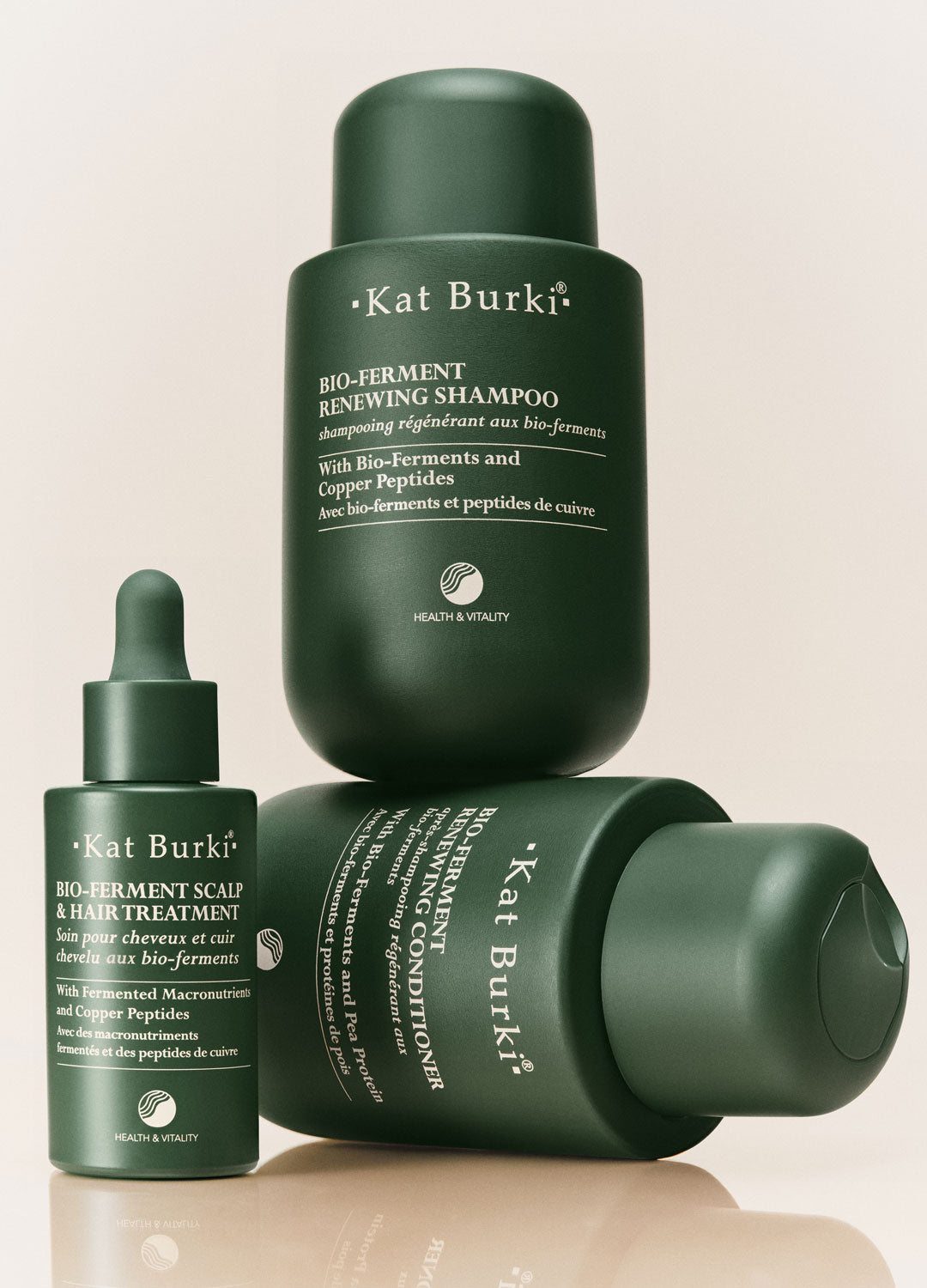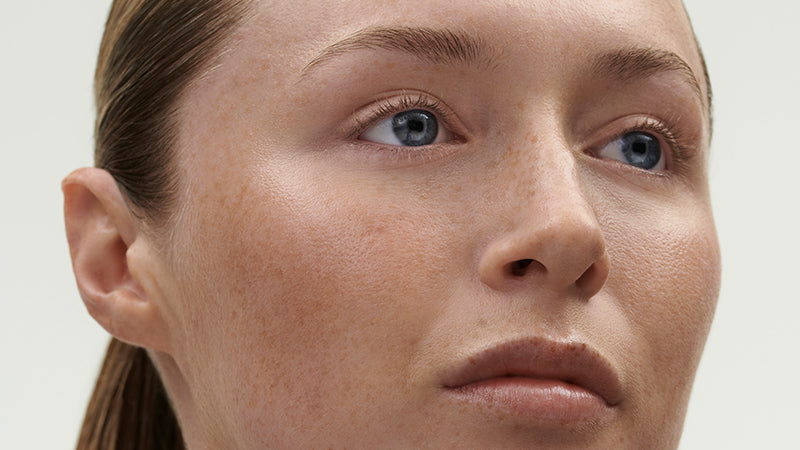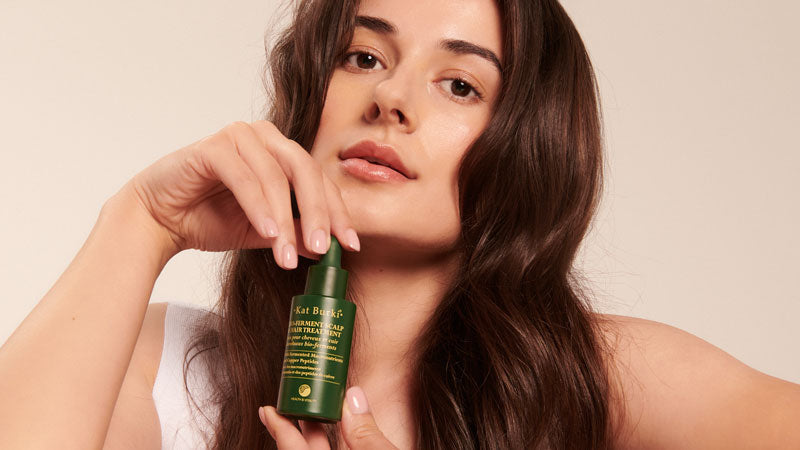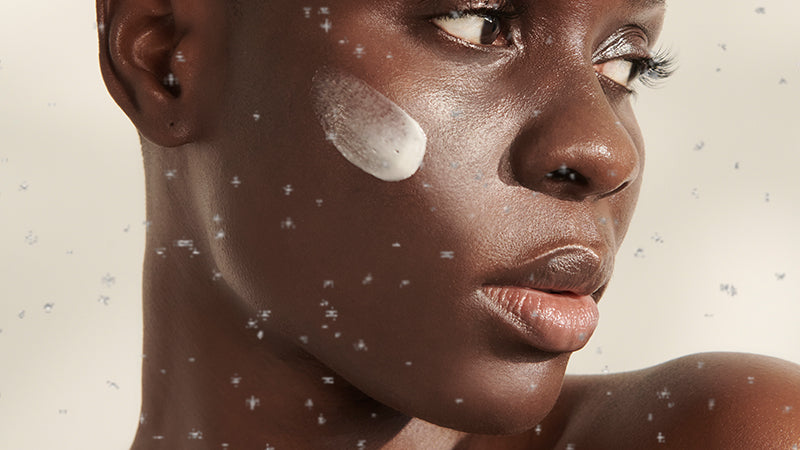There’s a lot of buzz around, “sleep hygiene tips,” but not nearly enough about the importance of cultivating beauty sleep hygiene habits and the role personal skincare plays. Sleep, or lack of it, shows on your face. When someone says “you look well rested,” or “you look tired,” they sense that sleep connects to your appearance. Puffy eyes and a dull lackluster complexion are usually signs you’re missing your nightly zzzz’s. In contrast, a radiant bright-eyed look, signals a healthy night’s slumber. It’s not surprising, a recent research study found that even as little as two nights of sleep loss can negatively alter your looks.

According to CEO and Founder Kat Burki, “When we go to sleep at night, our immune system kicks into gear. It starts clearing out old skin cells and rebuilding new ones.” A vital skin regeneration process happens during sleep called cell mitosis—when a cell divides on its journey to tissue growth. While you’re in dreamland, these deepest stages of sleep—REM and Slow Wave—are when regenerative activity intensifies, and the Human Growth Hormone (HGH) is released, which is integral to cell regeneration. Along with other essential functions, the hormone plays a crucial part in helping your skin produce collagen.
How smoothly your body is able to perform its interlocking systems is influenced by things such as, quality, consistency and duration of sleep—as well as personal skincare, the foods you eat, even emotional state. All these factors can impact regeneration, repair and skin healing during sleep. Don’t forget, your immune system connects to your inflammatory response. And healthy immunity reduces inflammation. On the flipside, lack of sleep contributes to inflammation, which lowers your ability to fight disease and influences your skin’s health, aging, and overall complexion.

As you get older, the process of skin turnover slows, and can cause dead skin cells to collect. There are various ways to help the process along, such as the nutrients you consume and also apply topically in personal skincare. “Pro-B vitamins are the number one vitamin responsible for cellular repair. They work as amino acid building blocks for tissue repair which includes the skin, hair, and nails. The perfect time to utilize these reparative vitamins would be at night to assist the body in its renewal process,” according to Burki.
Restorative sleep is nature’s balm to heal and rejuvenate your skin, contributing to a glowing complexion. Discover more about how your actions can boost cell regeneration during the evening hours:
FAQ
How can I improve my sleep?
Make a point of consuming antioxidant rich-foods and lower your intake of processed ones. Reduce blue light exposure in the evening, as it may interfere with falling asleep. Give your eyes time to decompress, by staying off devices at least an hour before turning in. Engage in a relaxing activity to reduce stress, helping you achieve longer, uninterrupted deep sleep cycles.
Can lack of sleep accelerate skin aging?
Yes, poor sleep habits can interfere with skin renewal and speed up the aging process. According to Sleep Medicine Physician, Dr. Lulu Guo, “During sleep skin production can more than double. This expedites repair from daytime damage.”
Research shows sleep loss may compromise skin barrier function—which is how skin protects you from things like free radical damage, chemical toxins, and UV rays, which contribute to sun damage, discoloration, and fine lines—in the form of photodamage. According to science, photoaging may account for as much as ninety percent of aging-related skin problems, including premature aging.
Does melatonin production during sleep benefit the skin?
Yes. Melatonin is a potent antioxidant, highly beneficial for skin. Research shows it helps protect the integrity of your skin barrier, also may reduce effects of photoaging. Melatonin also possesses anti-cancer and anti-inflammatory properties.
What is the best time to apply skincare for sleep?
At least an hour before turning in, cleanse your face, and let your skin breathe. Then apply serum and wait about fifteen minutes before applying creams. Give yourself roughly thirty minutes for products to become absorbed before turning in, with risk of them drifting off on your pillow.
How can I enhance skin renewal while I sleep?
Maximize cell turnover with skincare containing science-backed nutrients, especially B vitamins, retinol, lactic acid—and Vitamin C, which contributes to skin restoration and wound healing— and astaxanthin, a super carotenoid that helps fight and repair UV damage, strengthen the skin barrier.

Kat Burki products for skin renewal — suitable for all skin types
Renewal Line: BioCell Correcting Serum:encourage elasticity and plumpness, while reducing fine lines, wrinkles and sagging skin. A blend of proprietary Pro B vitamin and peptide complex, copper, niacinamide and astaxanthin, protects skin from environmental toxins, speeds up healing and helps repair photoaging.
Renewal Line: Eye Creme Complex: protect and fortify the delicate skin layers around your eyes with dewy Neem oil and antioxidant-rich green tea extract. Pro B vitamin complex, neuropeptides and ceramides help revitalize skin.
Renewal Line: Bio-Correcting Face Cream: a nutrient powerhouse formulated with neuropeptides and antioxidants, nurtures your skin’s microbiome while correcting damage. Alpha Arbutin and vitamin C work synergistically to brighten and correct uneven skin tones and address signs of aging, while MSM reduces puffiness and fine lines. Astaxanthin protects against environmental stress, free radical damage and signs of premature aging.
Prevention Line: KB5™ Calming Gel Cleanser:remove impurities and balance your skin’s microbiome with this gentle formula. 92 ocean minerals and Kat Burki’s proprietary KB 5 complex, deep cleanse and balance without stripping your skin’s moisture—meanwhile nourishing botanicals help stave off flare ups.
Reversal Line: Hand Therapy: a rich healing cream, formulated with KB five complex and botanicals to quench dry skin, soothe irritations, and promote elasticity. Along with hands and cuticles, it works beautifully to restore tired feet during sleep.
To help the cellular renewal process, maintain consistency with your skincare routine. Choose ingredients that purify and support your healing cycle. Be mindful to get enough rest—the CDC recommends a minimum of seven hours each night. Your skin senses when it’s sleep deprived because it has its own Circadian Rhythm AKA internal clock. Its job is to regulate processes such as protecting you from environmental toxins in the daylight. And at night it works on DNA repair, skin production and healing. Too little sleep throws off your rhythm and intricate skin regeneration systems. Remember to show your skin appreciation for all its vital work by practicing nightly self-care, and maximizing your sleep cycles.





